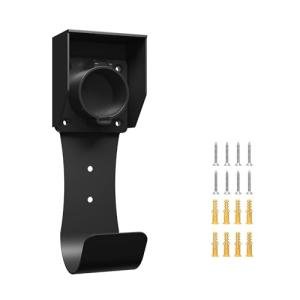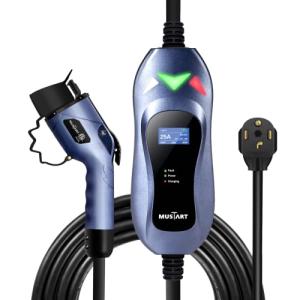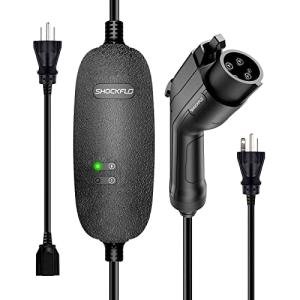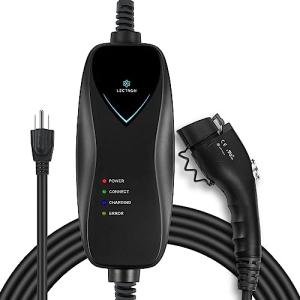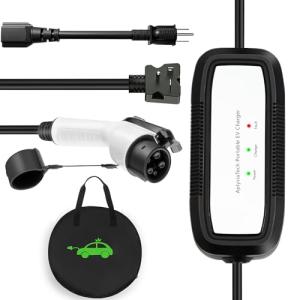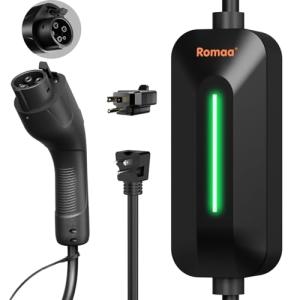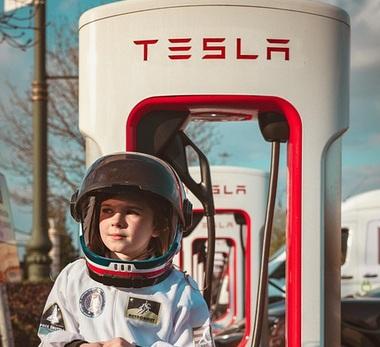When it comes to Electric Vehicle Charger Types, you’ve got a few options to consider. Each type serves a different purpose, making it important to pick the right one based on how you drive and where you typically charge your vehicle.
The first type is Level 1 chargers. These are your standard household outlets, like the ones you have at home. They’re super convenient if you’re charging overnight. Just plug your car into the wall socket, and you’re good to go! But keep in mind, they’re slower and only give you about 4-5 miles of range per hour. Great for folks who drive short distances daily.
Next up is Level 2 chargers. These are much faster and perfect for home charging or public charging stations. They typically boost your range by about 25 miles per hour! They require a 240-volt outlet, which might need some installation, but the extra speed is definitely worth it for many drivers.
Then we have DC Fast Chargers. If you're on a road trip and need a quick charge, these are your best friend. They can recharge your battery to 80% in just around 30 minutes! You’ll find them at highway rest stops and busy charging locations, making long trips a breeze.
Don’t forget about Wall Connectors, which are a stylish and efficient way to boost your home charging game. These typically go hand-in-hand with Level 2 chargers and look neat on your garage wall. All these Electric Vehicle Charger Types offer different benefits, so think about what best fits your lifestyle and charging habits!
Level One Charging for Home Use
Level One charging is the simplest way to keep your electric vehicle (EV) powered up at home. You can plug your EV directly into a standard household outlet, making it super convenient. This setup uses a regular 120-volt outlet, which means you don’t need any fancy equipment or installations. Just grab your charger that likely came with your vehicle, and you’re good to go!
While it’s simple, keep in mind that Level One charging is a bit slow. It generally adds about 3 to 5 miles of range per hour. So if you don’t drive a lot every day, this can work just fine for you. It’s ideal for overnight charging, allowing you to wake up to a fully juiced-up car. If you have a short commute, you’ll often find that you can charge easily at home and not worry about running out of battery.
One of the great things about Level One chargers is that they won’t break the bank. You don’t need to invest in any special installation costs or equipment, aside from what you probably already have. This makes it a budget-friendly option for new EV owners who want to dip their toes in before exploring other Electric Vehicle Charger Types.
In short, Level One charging is a hassle-free, cost-effective way to power your electric vehicle at home. Just plug in, let it charge overnight, and you’re all set for the next day's adventures. Whether you’re a casual driver or just starting out with your electric vehicle, this charging method hits the sweet spot between simplicity and efficiency.
MAX GREEN Wall-Mount EV Charger Nozzle Holster
Keep your charging area tidy and organized with the MAX GREEN Wall-Mount EV Charger Nozzle Holster
Product information
$24.98 $18.55
Product Review Score
4.28 out of 5 stars
143 reviewsProduct links
Level Two Charging for Faster Power
Level Two charging is a game-changer for EV owners who want their ride ready to go in no time. Unlike the standard Level One chargers that plug into regular outlets, Level Two chargers pack a punch, delivering 240 volts. That means you can charge your electric vehicle much faster—often adding around 25 to 30 miles of range for every hour of charging.
These chargers are fantastic for home use, especially if you have a dedicated parking spot. Imagine coming home, plugging in your car, and being ready to drive the next day with a full battery. You can also find Level Two chargers at public charging stations, which makes it super convenient when you're out and about. Just look for the charger with a J1772 connector, which fits most EVs on the road today.
Installing a Level Two charger at home does involve some upfront costs. You'll need a professional electrician to handle the installation, but it pays off pretty quickly. The extra power you get can make a big difference in your day-to-day life. If you regularly use your vehicle for long trips or commuting, this charger type is a smart investment.
And let's not forget about the features that come with many Level Two chargers nowadays. Some models offer smart capabilities—like smartphone apps for tracking your charging sessions and even scheduling charges during off-peak hours to save on electricity. This means you can optimize your charging habits and manage costs effectively, which is a win-win for you and the planet.
MUSTART Level 2 Portable EV Charger with 25ft Cable
Charge your electric vehicle quickly and conveniently at home or on the go with this versatile portable charger
Product information
$269.00
Product Review Score
4.26 out of 5 stars
80 reviewsProduct links
DC Fast Charging for Quick Stops
When you're on the go and need a quick charge, DC fast charging is your best friend. Imagine pulling into a station, grabbing a coffee, and by the time you're back, your car is nearly full. DC fast chargers can pump out power at lightning speed, making them perfect for those pit stops during longer road trips.
These chargers are designed to charge your electric vehicle much faster than standard AC chargers or Level 2 chargers. While those might take a few hours to get you back on the road, a DC fast charger can do it in as little as 20-30 minutes, depending on your vehicle and the charger’s output. It’s a total game changer for busy people looking to maximize their time.
You’ll typically find DC fast chargers at highway rest areas, allowing you to take a quick breather without worrying about running out of juice. They’re super easy to use too. Just plug in, hit start, and you’re free to relax for a bit. Some chargers even have apps or screens that let you know how much time is left, so you can plan your next move.
Keep in mind that not all electric vehicles can handle DC fast charging. It’s important to check your vehicle's compatibility before relying on them for those quick stops. Knowing the different Electric Vehicle Charger Types can save you a lot of time and frustration on your travels!

